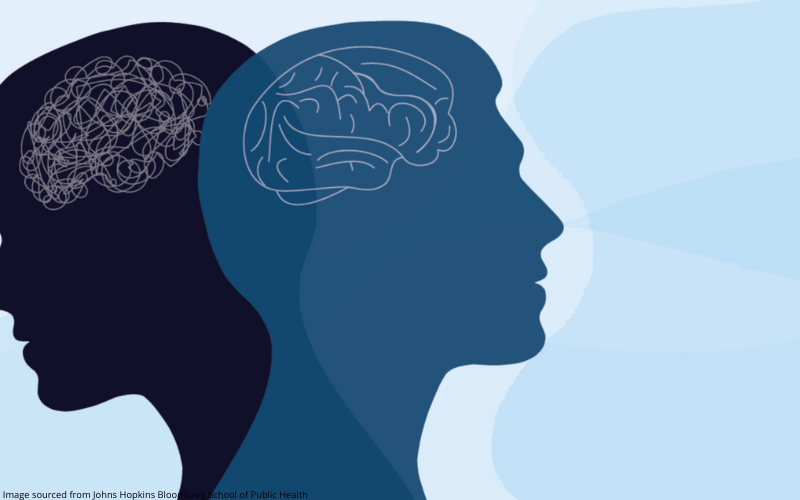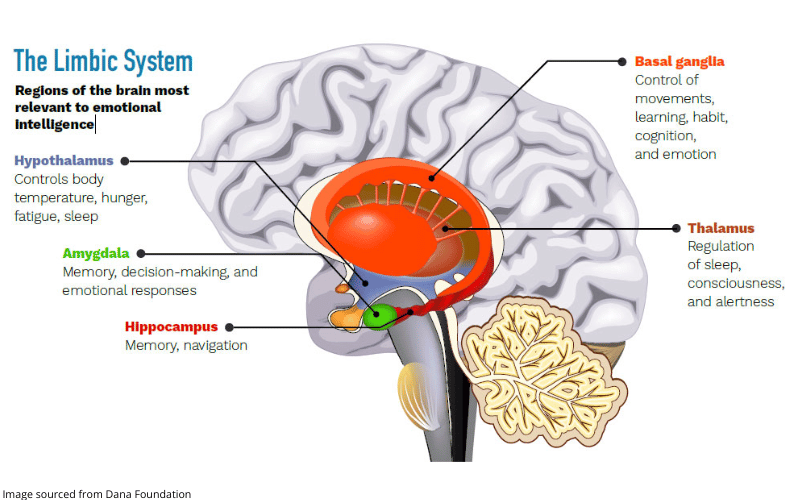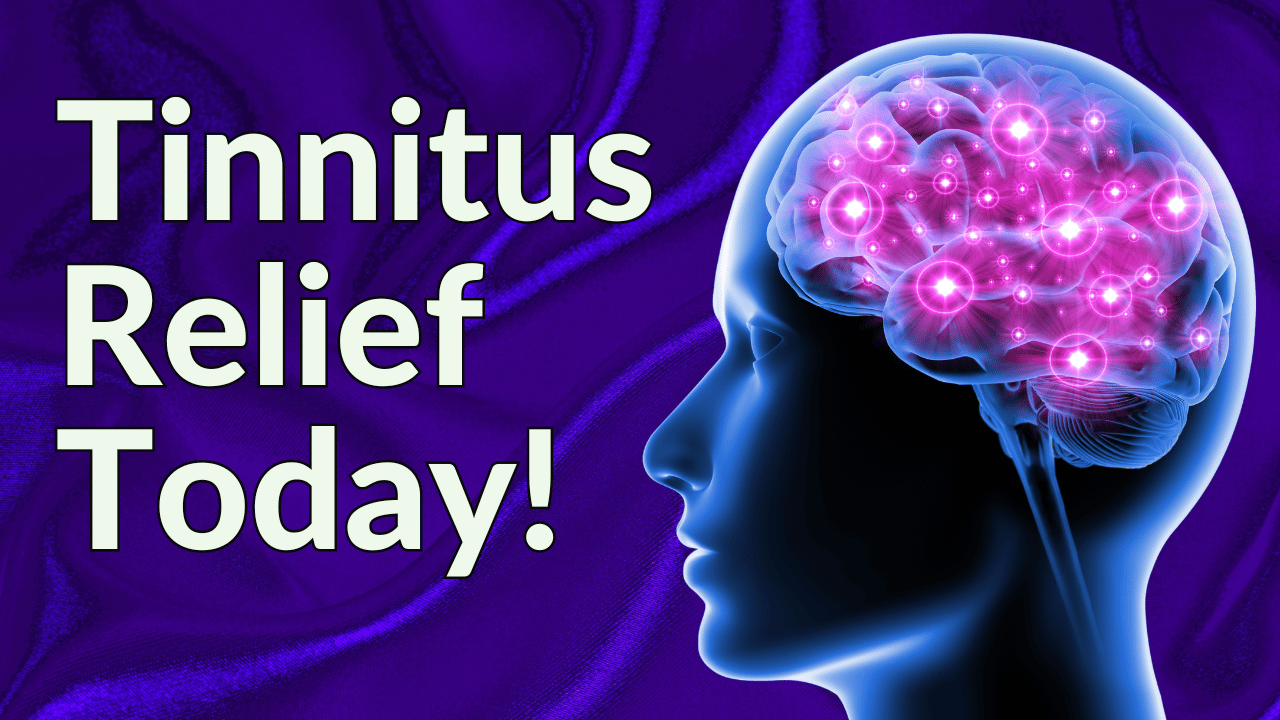Tinnitus, a condition experienced by as many as 25 million Americans, can significantly impact mental health. While many of those affected do not experience substantial disruption in their daily lives, about 20% face severe effects. These impacts can range from a diminished quality of life to heightened stress, anxiety, and even depression. These symptoms profoundly affect day-to-day functioning and can exert a considerable toll on one’s mental health. This leads to an important inquiry: What is the specific relationship between tinnitus and mental health? To understand this better, let’s delve into the nuances of this connection.
What Is Tinnitus?
For those who may not be familiar with the condition, let’s start by defining tinnitus. Tinnitus is described as the perception of sound when there is no external source of sound present in the environment. Essentially, individuals who experience tinnitus hear sounds that are not really there – however, it is important to note that this is NOT the same thing as hallucinations.
Tinnitus manifests in various forms, commonly experienced as ringing, buzzing, hissing, whooshing, or roaring sounds, among others. This description, however, is not exhaustive, as individuals report a wide range of auditory sensations. Additionally, the perception of tinnitus can vary, being heard in either one or both ears and may change in intensity or location at different times or days.
Tinnitus can be persistent, known as chronic tinnitus, or it may occur as isolated incidents, referred to as acute tinnitus.
There are two main types of tinnitus: subjective and objective. Subjective tinnitus is sound perceived only by the individual and is not detectable by a physician during a physical examination. In contrast, objective tinnitus produces sounds that can be heard by both the individual and the physician, such as internal body sounds like arterial bruits. Objective tinnitus is quite rare, with a classic example being the perception of a heartbeat sound in one’s ear.
It is important to note that while you can classify it in various ways, tinnitus is a symptom, not a disease. It is most commonly a symptom of damage to the delicate inner ear structures due to hearing loss or acoustic trauma, but has also been commonly reported as a symptom related to diabetes, hypertension, head and neck injury, kidney disease, and autoimmune diseases as well.
Prevalence & Tinnitus Severity
As we mentioned, tinnitus affects as many as 1 in 5 Americans, though it ranges in severity from person to person. However, the severity of tinnitus can be quantified with the use of subjective, self-reported questionnaires like the Tinnitus Functional Index (TFI) or the Tinnitus Handicap Inventory (THI).
For those who detect and react very little to the presence of their tinnitus, they often rate their severity very low and often do not suffer from mental health issues relating to their tinnitus such as depression or anxiety.
Those who detect and react very strongly to the presence of their tinnitus, often rate their tinnitus severity very high. These individuals often report severe tinnitus symptoms that interfere with their daily life functions and quality of life. Unfortunately, they often report mental health concerns like depression and anxiety in response to their tinnitus symptoms as well.
What Is “Mental Health”?

The phrase mental health is used by many with different definitions. However, “Mental Health”, according to the World Health Organization, is described as “a state of mental well-being that enables people to cope with the stresses of life, realize their abilities, learn well and work well, and contribute to their community.” Everyone experiences mental health differently, and it encompasses many different things that we interact with daily – all which contribute to this state of mental well-being.
Things that make us happy, feel loved, or included will contribute to a sense of good mental health. Conversely, things that make us feel worried, scared, sad, distressed, or irritated would likely lead to a poor sense of mental health.
It is also important to define mental health conditions when talking about mental health because, like the term mental health, the term mental health condition can have a few varying definitions.
According to the World Health Organization, which we will use to keep definitions consistent, “Mental health conditions include mental disorders and psychosocial disabilities as well as other mental states associated with significant distress, impairment in functioning, or risk of self-harm. People with mental health conditions are more likely to experience lower levels of mental well-being, but this is not always or necessarily the case.”
Overall, you can think of mental health as your perceived status of how you feel interacting with the world.
Tinnitus & Mental Health
Now that we have defined both tinnitus and mental health, it’s time to connect the dots on how they relate. While the exact science of tinnitus is still being researched extensively, clinical studies suggest that psychological symptoms of depression and anxiety are increased in tinnitus patients. Therefore, we know that there is a significantly higher risk of mental health disorders among those who suffer from debilitating tinnitus and the general population.
There are a few main contributing factors relating to this increased risk of mental illness as it relates to tinnitus:
- Hearing Loss (Auditory Cortex Involvement)
- Loss of Balance Function
- Reduced Sleep Quality
- Irritability
- Difficulty With Concentration
- Brain Fog
- Limbic System Involvement (Emotional Brain Response/Depression)
- Autonomic Nervous System Involvement (Fight-or-Flight Response/Anxiety)
Let’s break down each of these contributing factors.
The Relationship Between Hearing Loss And Tinnitus
The most common cause of tinnitus is hearing loss, with as many as 90% of those who experience tinnitus also experiencing hearing loss – which can be subcategorized into three different types: sensorineural hearing loss, conductive hearing loss, and mixed hearing loss.
Sensorineural hearing loss is hearing loss caused by damage to the structures of the inner ear or the nerve that transmits sounds to the brain. Conductive hearing loss, on the other hand, is caused by sounds not being able to reach the inner ear either through blockages like ear wax or malformation, malfunction, or damage to the outer ear or middle ear. The third type, mixed hearing loss, is hearing loss due to a combination of sensorineural hearing loss and conductive hearing loss.
Though all three types of hearing loss can be a cause of tinnitus, sensorineural hearing loss is the most common culprit.
Comorbid Conditions Of Hearing Loss
Hearing loss itself can lead to many issues when it comes to mental health. Difficulty hearing and being able to communicate with those around you can lead to feelings of frustration, isolation, and irritation – all of which can lead to feelings of depression, anxiety, and loneliness. These feelings and frustrations are even further amplified when tinnitus accompanies hearing loss.
Hearing loss can also affect mental health in other ways, too, as it is associated with a higher risk of falling due to reduced balance function and an increased risk of cognitive decline. Our hearing is closely linked with our balance system, so when there is a deficit, our bodies have a hard time with our sensory feedback system. This is why it can be helpful for older adults with hearing loss to walk with a cane or walking stick as the tactile feedback aids in making up for the hearing deficit.
So how does hearing loss increase the risk of cognitive decline? Well, the current majority of research has connected cognitive decline and hearing loss via social isolation. Those with hearing loss have increased frustration trying to communicate with others, so naturally, they try to avoid the frustration by having less interaction (i.e. social isolation).
Unfortunately, social isolation is strongly linked to cognitive decline, which makes sense if you consider the brain as a muscle. When you don’t work your muscles, they tend to wither away. It is the same with the brain and since social interaction is the primary way we work our brains, when there is less of it, we can see cognitive decline.
Tinnitus And Sleep Quality
One of the most commonly reported issues from tinnitus sufferers is reduced sleep quality or overall lack of sleep related to tinnitus symptoms. This is because most patients who have tinnitus report that it is the most prominent in quiet places (i.e., a bedroom) and is more noticeable when they are tired. This makes sense because the brain has less external sound to focus on and therefore ends up focusing more on the phantom sound.
Irritability

Irritability has been widely reported by those who experience tinnitus. Although not independently studied as a symptom of tinnitus, it is generally looped in with feelings of depression and anxiety.
The constant sound of tinnitus experienced all day every day can begin to grate on your nerves, leaving you feeling agitated, annoyed, and irritated.
Concentration Difficulties
Many tinnitus patients report difficulty thinking or concentrating due to the constant sound present in their heads. It is a constant distraction to their ability to remain focused.
Studies show that tinnitus can negatively impact cognitive function, attention, memory, and overall processing speed. It can also negatively impact recall and retrieval of information as well as increase listening effort which can affect cognition.
The Vicious Cycle Of Tinnitus: Impacts on The Auditory Cortex, Autonomic Nervous System & Limbic System
It is important to understand the relationship between tinnitus and the brain to understand the variance in severity.
Tinnitus involves three main parts of the brain – the auditory cortex, the autonomic nervous system, and the limbic system. These three systems work in tandem together within the brain of the tinnitus sufferer to determine how severe that person perceives their tinnitus symptoms.
The Auditory Cortex
The auditory cortex is located within the temporal lobe of the brain, which sits behind the ears. It is responsible for receiving auditory signals.
Damage to this area of the brain is thought to be the origination point of tinnitus. Damage in the auditory cortex causes hyperactivity along the auditory nerve fibers as these neurons search for missing auditory input from damaged cochlear hair cells. This leads to the brain mistakenly processing sounds that aren’t in the external environment, creating tinnitus.
The Autonomic Nervous System
The autonomic nervous system is responsible for the detection and attention to the presence of new things in our environment. This system helps us to label new stimuli as good, bad, or neutral. This system is also responsible for our fight-or-flight reflex, a reaction that occurs in the body when we perceive stressful, threatening, or harmful stimuli. During a fight-or-flight response, our senses become heightened.
For the 20% of tinnitus patients who report severe tinnitus symptoms, their autonomic nervous system is likely in a state of fight-or-flight where their body is searching for stimulus in the environment to figure out what is going on. Those nerves become excited, creating phantom sounds which results in feelings of stress or anxiety.
The Limbic System (The Emotional Brain)

The limbic system, a collection of structures deep in the central part of the brain, is responsible for how we feel about the stimuli in our environment.
Many studies show that tinnitus patients often suffer from feelings of depression and anxiety as it relates to their tinnitus. This is likely moderated through the limbic system as the limbic system tells the brain that the signals it is receiving from the tinnitus are harmful and threatening.
Additional Research On Tinnitus And Mental Health
A study in 2021 examined the connection between tinnitus and psychological disorders like depression, anxiety, and sleep quality with a population of middle-aged and older adults. The research concentrated on how tinnitus affects daily life and whether or not hearing loss was present.
The findings demonstrated a strong link between tinnitus prevalence and experiencing more symptoms of depression and clinically significant anxiety, as well as having lower sleep quality, even when tinnitus did not disrupt daily activities significantly. Interestingly, hearing loss did not seem to be a primary factor in these connections.
So while hearing loss, tinnitus, and mental health are all interconnected, those with tinnitus do not have to have hearing impairment to experience the effects tinnitus can have on their mental health.
Other Factors That Contribute To Mental Health As It Relates To Tinnitus
As you can see, tinnitus can have a negative impact on mental health if it is severe or persistent. According to further research, there also seem to be other factors that can contribute to how the impact tinnitus has on mental health presents itself.
Gender
A 2020 study looked at the possible link between the psychological comorbidities of tinnitus and gender differences.
The results indicated that overall there were general gender differences for psychological comorbidities in tinnitus patients, with women reporting more depression, anxiety, and worries. Men, on the other hand, showed a higher need to control their negative thoughts more. Additionally, their results indicate that men might have more coping problems with increasing levels of tinnitus distress, leading to increased depressive symptoms.
These study results support that the negative impact that tinnitus can have on a person’s overall mental health differs between genders.
Age
Age may be another contributing factor to tinnitus’ impact on mental health. Although tinnitus can affect a person of any age, it is most commonly associated with the onset of hearing loss, which is most prevalent amongst the aging adult population.
A 2011 study found that the age of the person at the time of their tinnitus onset has a possible influence on their related tinnitus distress levels. Results of the study showed that the higher the age at the time of tinnitus onset related to higher tinnitus-related distress.
This could be due to the decreased neuroplasticity that occurs within an aging brain or possibly as a result of an influx of other health-related changes that occur as part of the aging process, making the onset of tinnitus just one more of many health issues to cope with at one time.
It was also reported in this study that aside from age, the duration of tinnitus and type of tinnitus onset (gradual vs. sudden) also resulted in higher tinnitus-related distress.
Relationship Status
Tinnitus is subjective, meaning that only you can hear and experience the sound of it; however, since tinnitus can impact your emotional well-being, it can also affect those around you despite them not hearing or experiencing it themselves.
A few studies have explored the effect of tinnitus and how it affects the partner of an individual experiencing tinnitus.
A study from 2022 evaluated the effects of tinnitus on significant others and found that tinnitus negatively affected 58% of the relationships included in the study due to frustrations in communication. It also found that 85% of significant others in the study reported their tinnitus impacted them in terms of sound adjustments, emotional toll, helplessness, activity limitations, and additional demands.
We have also touched on the association between relationship status and the effects of tinnitus in our blog titled “Impact of Chronic Tinnitus” which you can find here.
What To Do If Tinnitus Is Affecting Your Mental Health
If you have tinnitus and feel that it is affecting your mental health, it is time to seek out professional help. There are many ways to go about treating tinnitus including getting fitted for hearing aids, using Tinnitus Retraining Therapy, engaging in Cognitive Behavioral Therapy, and Sound Therapy.
Our professionals at Treble Health offer each of these treatments in conjunction with one another to help manage tinnitus, alleviate the effect it has on your day-to-day functioning, and help improve your quality of life.
You do not have to do this on your own – our team is here to help. Get started today by booking your free consultation with one of our expert audiologists.
Next Step: Book Free Consultation
- 75% of patients reduced their tinnitus within three months after following our recommendations.
- "I feel like Treble Health literally gave me my life back." - Randy S. (verified customer)
- Join thousands of people who have reduced their tinnitus after scheduling a free consultation.











